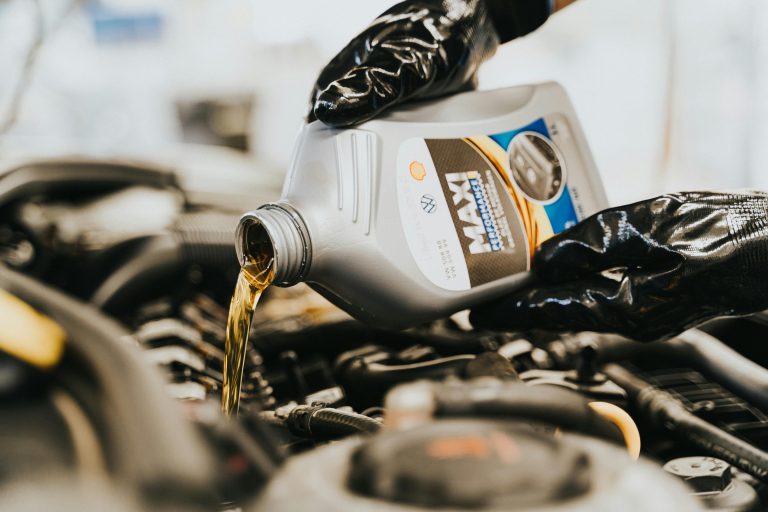For most car owners, oil changes are a no-brainer. You schedule them regularly, you watch the mileage, and you know that skipping one could damage your engine. But what about your transmission? It’s easy to forget it even exists—until it stops working properly. The truth is, routine transmission service is just as important as oil changes, and neglecting it can be just as costly, if not more.
The transmission is your vehicle’s powerhouse. It sends engine power to the wheels and keeps your ride smooth. And just like oil keeps the engine healthy, transmission fluid keeps those gears moving efficiently. So why do we ignore it?
The Transmission Works Just as Hard as the Engine
Your transmission is always working when your car is. Every time you shift gears—whether you’re driving an automatic or a manual—your transmission is making hundreds of micro-adjustments to maintain speed and performance. In an automatic vehicle, the transmission constantly adapts to your driving habits, terrain, and load.
Over time, transmission fluid breaks down, just like motor oil does. It loses its ability to cool and lubricate, allowing metal components to grind against each other. Dirty fluid can lead to overheating, delayed shifting, and internal damage. That’s why it’s not enough to “set it and forget it.” Regular checks and servicing help extend the life of this essential system.
What Does Routine Transmission Service Involve?
Transmission service isn’t just about topping off the fluid. A proper service often includes inspecting the transmission pan, cleaning or replacing the filter, draining the old fluid, and refilling it with clean, manufacturer-approved fluid. Some vehicles even benefit from a complete flush—where all the old fluid is removed and replaced. This prevents leftover debris or worn particles from circulating through the system.
The recommended service schedule varies, but most manufacturers suggest having the transmission fluid checked at least every 30,000 to 60,000 miles. If you drive in harsh conditions—like extreme heat, heavy towing, or stop-and-go traffic—more frequent maintenance may be needed.
A reliable shop can assess your vehicle’s specific needs, especially in hot climate US States, where higher temperatures can strain your transmission even more.
Warning Signs You Shouldn’t Ignore
Transmission problems can sneak up on you. They often start small—like slipping gears, jerky acceleration, or delayed shifting. You might notice a strange burning smell or a leak under your car. These symptoms are your vehicle’s way of waving a red flag.
Unfortunately, many drivers ignore these signs, thinking they’ll go away or blaming it on “just how the car drives.” But transmission issues don’t fix themselves—they only get worse. By the time your car is making loud noises or refusing to go into gear, you’re likely looking at a costly repair or even a full replacement.
The good news? Routine maintenance helps catch these issues early—before they become serious. Just like getting your oil changed, scheduling regular transmission service is a simple way to avoid unexpected breakdowns and big repair bills.
Transmission Repair Costs More Than Maintenance
One of the biggest reasons to stay on top of transmission service is financial. An oil change might cost you $50–$100 depending on your car, but transmission repairs can run into the thousands. A complete transmission replacement could cost anywhere from $2,500 to $5,000, depending on the make and model.
On the other hand, routine transmission service is affordable. It’s a small investment that protects your vehicle’s long-term health and keeps you on the road. Think of it as part of your car’s preventive care—just like going to the doctor before something feels seriously wrong.
If you’re unsure of your car’s transmission service history, ask your mechanic or dealership to check it out. Especially if you’ve recently purchased a used vehicle, this is a smart step to take.
Don’t Wait for a Problem to Show Up
Your transmission doesn’t get the same spotlight as the engine, but it’s just as essential. Regular oil changes may keep the engine running, but without a healthy transmission, your car’s not going anywhere. That’s why routine service matters.
Building good maintenance habits doesn’t require a ton of effort—it just takes awareness. Keep track of your mileage, watch for signs of trouble, and get your transmission fluid checked on schedule. Partnering with a trusted auto shop makes the process even easier, especially when they already handle your other vehicle services.
Whether you’re driving short city commutes or long road trips, your transmission deserves the same attention and care you give to your engine.
Conclusion: Keep It Moving
Your car is more than a machine—it’s part of your daily life. And while you wouldn’t skip an oil change, skipping transmission service is like ignoring a ticking time bomb. It might not explode today, but when it does, it could leave you stranded with a hefty repair bill.
So if you’ve been putting off checking your transmission fluid or don’t remember the last time it was serviced, now’s a good time to act. Keeping your transmission healthy doesn’t just save money—it gives you peace of mind every time you hit the road.
For expert care and reliable advice, a service provider like Elite Automotive can guide you through what your vehicle needs and when. After all, your car takes care of you—return the favor by taking care of it.







